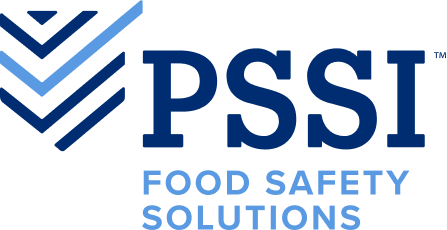At PSSI, we believe that strong communication and transparency are the cornerstones of effective operations and successful partnerships. Our commitment to these values is evident in our regular sanitation meetings with plant management. These meetings are not just scheduled check-ins; they provide a dedicated time to connect, ensuring both our sanitation teams and our partners are aligned in their goals of maintaining safety and protecting the food supply. Here’s how these meetings bring value and the key topics that drive our discussions:
The Importance of Regular Sanitation Meetings
Regular sanitation meetings are important for identifying and addressing issues in the plant that may relate to safety hazards, sanitation performance, microorganism trends, or flaws in sanitary design. With open communication, these meetings help us stay ahead of potential issues, ensuring a proactive approach to maintaining a safe and sanitary environment. They strengthen the relationship between PSSI and plant management, creating a united front in overcoming challenges and upholding high standards.
8 Essential Topics for Regular Sanitation Meetings
- Hazard Recognition Follow-Up – In these meetings, we review the list of identified hazards and the progress made in resolving them. While serious hazards that could result in serious injuries or fatalities (SIFs) are addressed immediately, other hazards are managed based on the plant’s maintenance team’s workload and resources. This continuous follow-up ensures that potential risks are consistently monitored and mitigated.
- Master Sanitation Check-In – Weekly check-ins allow both PSSI and plant managers to review completed tasks and upcoming responsibilities. Questions like “What does PSSI need to request from the plant or facilities team?” and “Where should we focus our efforts this weekend?” ensure that all parties are prepared, with the necessary PPE and equipment to perform non-daily cleaning tasks safely and efficiently.
- Safety Milestones and Celebrations – Celebrating safety milestones together fosters a sense of team unity and reinforces our strong safety-focused culture. Discussing accident-free goals and including customers in safety celebrations can enhance engagement and appreciation for PSSI’s dedication to safety.
- New Equipment – Proactively discussing any new equipment or construction plans helps PSSI prepare for changes that could impact safety and food safety programs. This insight ensures that our teams are always ready to adapt to new conditions.
- Sanitary Design – Sharing ideas on potential improvements in sanitary design adds value to our relationship with plant staff. Documenting these suggestions and talking about them during sanitation meetings drives our commitment to continuous improvement.
- Micro Trends – Regular meetings are an excellent opportunity to discuss microorganism trends. Understanding these trends helps us pinpoint areas that may require additional attention, ensuring we maintain the highest standards of cleanliness and safety.
- NR Reporting – Monitoring the number of non-compliance reports (NRs) allows us to identify areas for improvement. Addressing these issues promptly can reduce the number of NRs, positively impacting the plant’s overall score.
- Audit Readiness – By discussing upcoming audits or plant visitors with PSSI, we can effectively plan and prepare together. This collaboration ensures that your facility is always audit-ready and compliant.
Building Stronger Partnerships through Communication
At PSSI, regular sanitation meetings with customers help us build stronger, more transparent partnerships. By focusing on these eight key topics, we ensure that our operations remain efficient, our communication channels stay open, and our customers’ brands are protected. This collaborative approach not only addresses immediate concerns but also promotes a culture of continuous improvement and mutual respect. By prioritizing communication and transparency, we reinforce our commitment to service excellence and demonstrate the true value of partnership.

